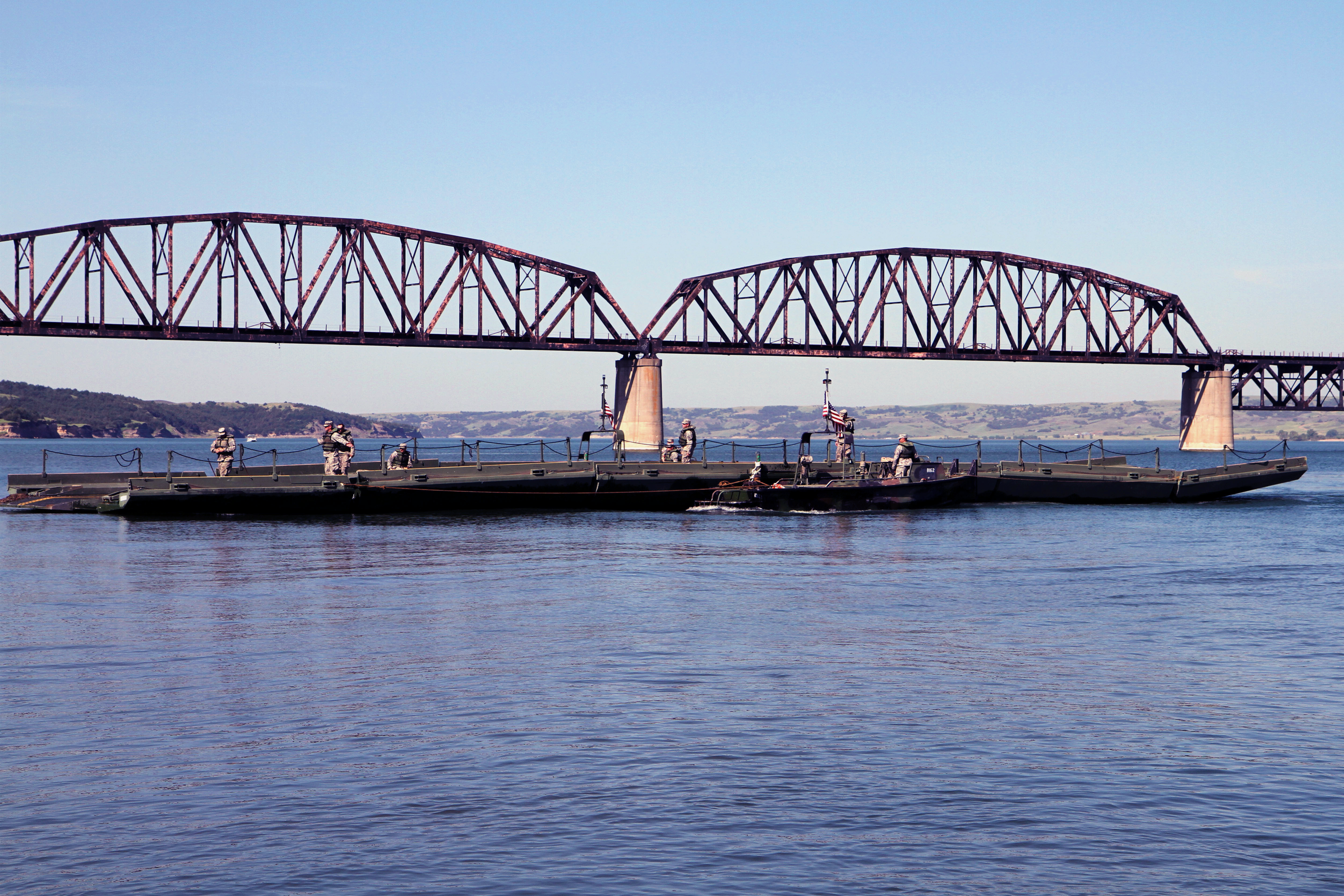The Chamberlain is the only surviving bridge of the original five. The others were replaced as the river rose due to flood control dams put in place over time.
For its first 30 years of statehood, South Dakota was effectively two states. The Missouri river cut across the land forming a barrier to economical development in the west. Conventional wisdom at the time estimated the cost of permanent bridges across the Missouri at $1 million apiece. But budding engineer John Edward Kirkham, through the strict application of a classic principle of bridge design, built five steel and concrete truss bridges for $2 million total.
Kirkham knew that bridges can be built least expensively when the cost of the foundations equals the cost of the superstructure minus the floor system. For example, if longer piers were required due to soil conditions, he would lengthen trusses to reduce the cost of the superstructure and offset the increased cost of the foundation.
The Chamberlain, Wheeler, Mobridge, Pierre and Forest City bridges were simple, elegant structures that played a big role in South Dakota's early growth.
Facts
- Prior to 1920, the only permanent Missouri River crossings in South Dakota were railroad bridges. Other travelers used ferries or pontoon bridges, both of which were inaccessible in winter.
- Kirkham predicted that the Mobridge bridge would carry traffic for 500 years. It might have if not for four dams built in the 1940s that widened the river, necessitating the replacement of the bridge.
- The Chamberlain is the only surviving bridge of the five. The others were replaced as the river expanded due to flood control dams.
- The success of Kirkham's cost equation was due in part to a lack of overlapping regulatory requirements that often increase construction costs today.
- Kirkham made several other engineering contributions to South Dakota's development: new box culverts, concrete viaducts and "tar-wood floors" that reduced weight and cost on smaller South Dakota bridges.



